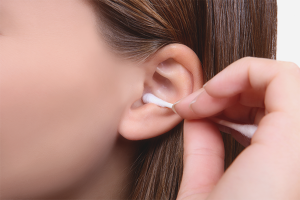The content of the article
Yawning is an unconditioned reflex act in which the muscles of the face and respiratory muscles are involved. Scientists believe that this process is necessary for a person to maintain the normal functioning of the brain, although the causes of yawning are not fully understood. Yawning in public, during a conversation, at lectures, conferences and other meetings is considered bad form and a sign of disrespect. You should learn to get rid of the desire to yawn, for this you need to know the mechanisms and causes of this act.
Reasons for yawning
The exact reasons are still unknown. There are many theories, among them three remain leading:
- Lack of oxygen. The brain consumes more oxygen than any other organ in the human body. If a person is in a stuffy room or in tight clothing, as well as diseases of the cardiovascular and respiratory systems, neurons of the central nervous system experience oxygen starvation. Yawning helps to cope with this problem and provides the flow of oxygen-enriched blood to the brain. This theory explains yawning from fatigue and boredom. When a person wants to sleep, blood flow slows down.
- An increase in blood temperature. The human body has several organs whose temperature is maintained at a constant level: the brain, heart, liver, and kidneys. The central nervous system is most susceptible to overheating. There are centers in the brain responsible for controlling temperature; if it rises, the body takes measures to cool it. The first is to cool the brain, for this a yawn is made, and cooler blood rushes to the neurons.
- Muscle warming up. The facial and masticatory muscles of the face, the muscles of the larynx, pharynx and tongue, as well as the main and auxiliary muscles involved in the act of breathing, participate in the yawning act. Yawning normalizes the blood supply to these muscles and eliminates their fatigue.
Why yawning is contagious
The listed reasons do not explain the contagiousness of yawning. Why do we imitate? Scientists have two theories:
- Mirror neurons. There is a theory that in the nervous system there is a group of cells responsible for imitation. They are called "mirror". Because of such neurons, a person wants to yawn every time he sees a yawn or reads about yawning. This mechanism in some people is more developed, in others weaker. Mirror neurons are not only responsible for yawning, a person may want to draw when he sees the artist or start banging his hands on a hard surface, watching the drummer. Mirror neurons also apply to other types of animals, so you can yawn after a dog or cat.
- Imitative sympathy. Scientists have found that we yawn at the same time with familiar people more often than with strangers. Children often yawn after their parents, and pets imitate the owners. Why? It is difficult to answer this question unequivocally. Perhaps the mechanism of such yawning is similar to the mechanism that makes us imitate the voice or posture of the interlocutor. Thus, the body subconsciously tries to please someone, imitating its actions.
Yawning mechanism
The brain starts the process. Neurons send impulses to the muscles involved in the act of breathing. A person takes a long, deep breath with his mouth wide open, and then a short exhale. Due to the involvement of the vocal cords in the yawning process, in some people inhalation and exhalation are accompanied by a characteristic loud sound. It can be easily suppressed.
What happens in the body at this moment? A large portion of oxygen enters the lungs, which quickly enters the bloodstream.However, due to increased pressure in the lungs, the heart rate slows down. Because of this, after a second venous stasis, a large portion of blood enters the pulmonary circulation, respectively, most of it is enriched with oxygen. These processes help eliminate hypoxia.
In addition, during yawning, a spasm of the vessels of the face occurs, they are compressed by facial and chewing muscles. Since the brain and head feed from the branches of the common carotid artery, and its facial branches are closed, when yawning, a large portion of the blood rushes to the brain.
The muscles involved in the act of yawning experience short-term hypoxia, after which more blood is added to them, which brings oxygen and carries away harmful metabolic products. This eliminates muscle fatigue.
During yawning, the channels of the sinuses of the nose open, as well as the Eustachian tube connecting the ear and pharynx. This helps to balance the pressure in the inner ear and eliminate the feeling of stuffiness.
How to get rid of yawning
First of all, you need to try to eliminate the causes of yawning:
- Leave the airless room or open a window. So the body will receive the necessary portion of oxygen, without resorting to the act of yawning.
- Loosen the tie or unfasten the top button of the shirt. It is possible that clothing elements impede the free flow of blood to the brain and neurons suffer from hypoxia due to this.
- Take a deep breath when you feel tired and lose attention.
- If yawning does not recede, do a little warm-up - this will help to cheer up and increase the intensity of blood flow.
- Occupy yourself with something, perhaps a yawn appeared due to boredom.
- Some sources suggest applying an ice pack to your forehead to lower the temperature inside the skull. This can save you from yawning and at the same time cause a frontal sinusitis, headache and trigeminal neuralgia. It is better to moisten a handkerchief or piece of cloth with cool water and put it on your forehead.
Do not look at those who are yawning. Turn away or switch attention when another person yawns. This will help not to follow his example.
If the desire to yawn remains, you can overcome the process itself. As soon as you feel that you want to yawn, tightly close your teeth and inhale deeply with your nose. This process is less noticeable than a full yawning act. If this fails, just cover your mouth with your hand.
Remember that yawning is good for the body. Despite the rules of good behavior and impeccable education, allow yourself to yawn periodically. If you suffer from frequent uncontrolled yawning and nothing helps, consult your doctor, perhaps this is the first symptom of cardiopulmonary pathology.
Video: yawning as a symptom of a serious illness











Submit